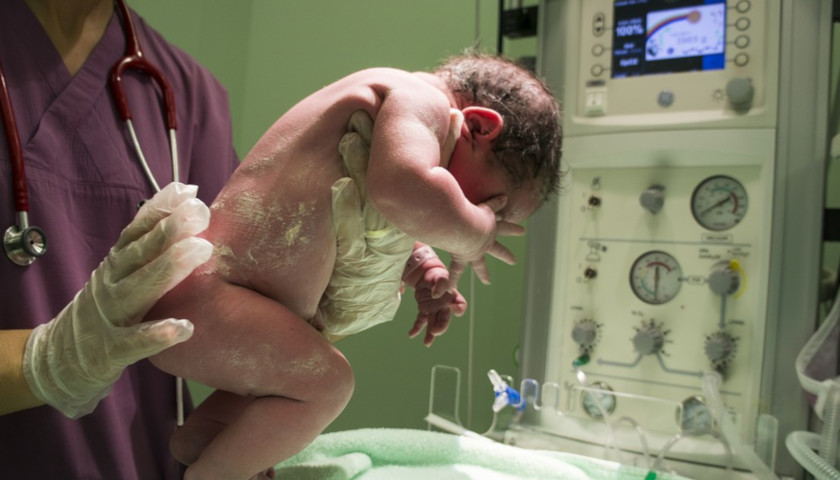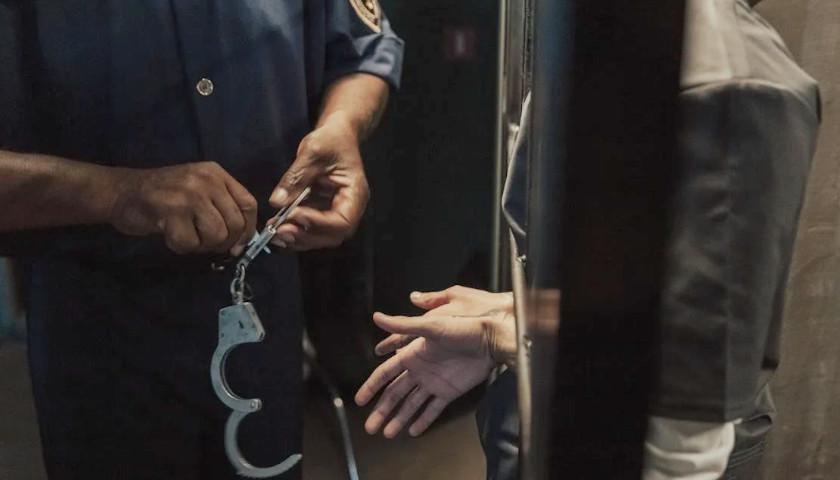Following Governor Bill Lee’s approval, the state of Tennessee will require surgically aborted children to be put to rest humanely, through either burial or cremation. The Unborn Child Dignity Act would only extend to “ambulatory surgical treatment centers,” private offices, or other in-person facilities described in the Tennessee Code. Meaning, the act wouldn’t cover children aborted through at-home procedures like the pill.
State Senator Janice Bowling (R-Tullahoma) introduced the bill first, and it was picked up by State Representative Tim Rudd (R-Murfreesboro) in the House. The Senate passed the bill on Wednesday, 27-6 along party lines.
In a press release shared with The Tennessee Star, Bowling cited a previous Supreme Court opinion on similar bills.
“These are the remains of human beings and I am very pleased that the Tennessee General Assembly has voted to see that they are treated as such,” said Bowling. “I agree with the Supreme Court Justice Clarence Thomas, who wrote the majority opinion upholding the Indiana law requiring the dignified disposition of human remains when he said, ‘I would have thought it could go without saying that nothing in the U.S. Constitution or any decision of this court prevents a state from requiring abortion facilities to provide for the respectful treatment of human remains.'”
During the final Senate floor hearing, Bowling explained that just over 862,000 abortions occur in the U.S. on average each year; nearly 11,000 occurred in Tennessee alone last year, or approximately 30 a day.
“This legislation strives to extend the same protections, respect, and dignity to a deceased, surgically aborted child, as it would to any other deceased human being. It would be the responsibility of mother of the aborted child, or the abortion facility, to provide at their expense a burial or cremation. This legislation does not limit or restrict an abortion or access to an abortion – it only attempts to guarantee an acceptable level of respect for an aborted child.”
Tennessee has two surgical abortion facilities. Bowling explained that other states regulate the disposal of aborted children, with several requiring “humane” disposals of fetal remains: Alabama, Arkansas, Idaho, Indiana, Louisiana, Minnesota, North Carolina, North Dakota, Ohio, Oklahoma, and Texas.
“While human fetal remains can be disposed of humanely, they are often and most often not. They are disposed of with medical waste or dumped in the landfills in the trash, and there’s even reports that some are put into disposals,” explained Bowling.
State Senator Jeff Yarbro (D-Nashville) asked why the Unborn Child Dignity Act doesn’t address fetal remains that come from miscarriages, hospital abortions, medical abortions, or fertility clinics. He said that miscarriages , and argued it wasn’t lawful.
Bowling explained that hospitals already have regulations in place, and that the state only has the authority and responsibility to address actions of abortion facilities.
State Senator Heidi Campbell (D-Nashville) asked what would happen to cremated remains, especially for early-stage aborted fetal remains that are as small as lima beans. She also asked what would be done about molar pregnancies: a rare occurrence in which one or more sperm cells fertilize an empty egg.
“This is why I think that this is another example of why the legislature probably shouldn’t be in the business of regulating complicated medical issues,” said Campbell. “Big government overreach into our personal lives creates more problems than it solves. This is a medical situation, and there are all kinds of alternative outcomes that aren’t being addressed in this bill.”
Bowling said that the bill addresses where the remains go, no matter how small. She said the cost ranges from $100 to $150 for cremation or burial. To the latter concern, Bowling said that molar pregnancies aren’t categorized as human life, and therefore wouldn’t be subject to the Unborn Child Dignity Act.
State Senator Raumesh Akbari (D-Memphis) said that she thinks requiring cremation or burial of aborted children is an undue burden on women and their families. She said that this would be a cruel act that would inflict trauma.
In defense of the Unborn Child Dignity Act, State Senator Mike Bell (R-Riceville) pointed out the 2019 U.S. Supreme Court ruling that upheld a similar law in Indiana. Bell reiterated that the subject of the bill isn’t fetal tissue – it’s human life.
In further support of the act, State Senator Page Walley (R-Bolivar) shared that the National Institute of Health (NIH) and the medical community refers to unborn children’s remains as “clinical waste.” He agreed with Yarbro’s assessment that the bill should apply to all situations of unborn children.
State Senator Kerry Roberts (R-Springfield) predicted, correctly, that the vote would fall along party lines. He lamented that senators couldn’t view this issue as a perspective on life.
The House passed the Unborn Child Dignity Act on Monday, 69-22.
The act now heads to Lee’s desk for his signature. If approved, the bill would become law on July 1.
– – –
Corinne Murdock is a reporter at The Tennessee Star and the Star News Network. Follow her latest on Twitter, or email tips to [email protected].





